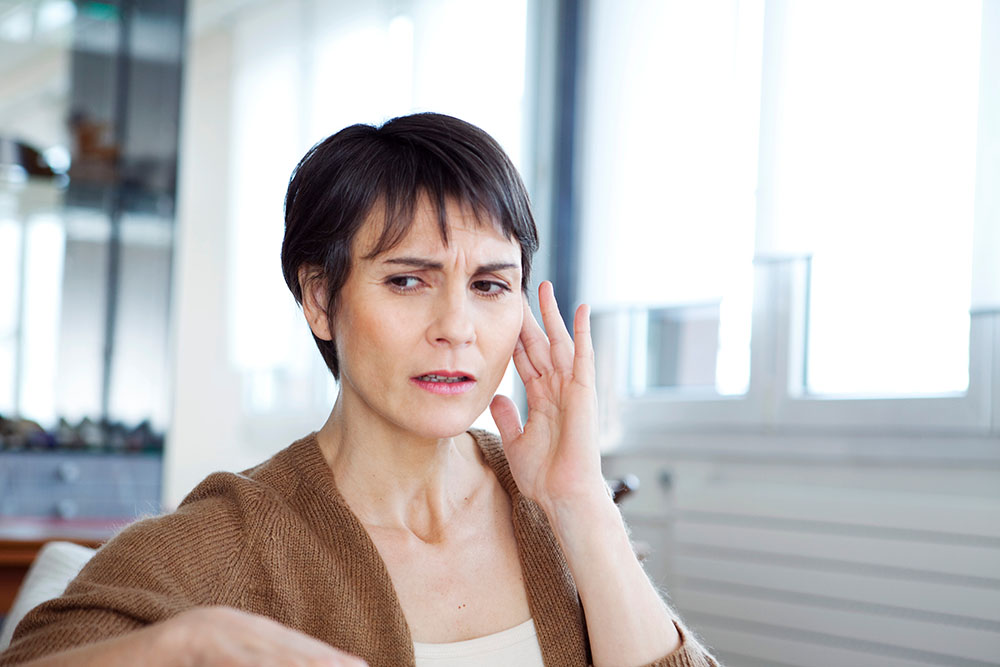
Do you feel like you can hear ringing or buzzing in your ears, but there is no explanation for where the noise is coming from? When there is a perception of sound and other people can’t hear it, then it could be an indication that you are suffering from tinnitus.
Tinnitus is quite common, with an estimated 15 – 20% of the population experiencing it at some point in their lives. The likelihood of having tinnitus increases with age and is more prevalent among older adults.
Doctors are still researching tinnitus to understand the underlying cause. Usually, it is a symptom of another underlying condition. For example, if a person has an ear injury or age-related hearing loss, then tinnitus can develop.
Hearing loss can be associated with tinnitus due to the damage that occurs to the tiny hairs within the inner ear. If these hairs are broken or bent (which happens due to age or exposure to loud sounds), then random electrical impulses can be “leaked” and result in tinnitus sounds.
Other potential causes of tinnitus might include:
Sometimes, the use of certain medications can cause these symptoms. For example, antibiotics, nonsteroidal anti-inflammatory drugs, diuretics, antidepressants, and cancer drugs can sometimes cause ringing in the ears.
Sometimes, the cause of tinnitus can be difficult to identify. You might experience ringing in the ears and doctors can’t find an underlying condition to treat.
Most people describe tinnitus as a ringing sound in the ears, ranging from a quiet background noise to louder sounds. This sensation happens without explanation because there are no external factors that are causing the noise.
Other phantom noises can also occur, such as:
The frequency of the sound can vary in pitch. Some patients describe tinnitus as a high squeal while other people experience it as a low roar – and everything in between. It’s possible to have tinnitus in only one ear, or it can be present in both.
Sometimes tinnitus sounds like your heartbeat, or you might hear a whooshing or rhythmic sounds. These symptoms are known as pulsatile tinnitus, but they are uncommon.
These symptoms can be present at all times. Or, it’s common for tinnitus to come and go. While the perceived sounds are typically faint and in the background, the noises can become so loud that it interferes with a person’s ability to concentrate.
Tinnitus can affect anyone, but there are certain factors that increase the likelihood someone will experience tinnitus. Common risk factors include:
How do you know If you should talk to a doctor about tinnitus? Many people live with tinnitus on an ongoing basis and they aren’t bothered by the symptoms. But it might make sense to visit with an ear and hearing specialist if any of the following apply to you:
Talking to a doctor can be helpful in identifying if there are any underlying causes that are affecting your tinnitus symptoms. For example, your doctor might determine that you have hearing loss and recommend hearing aids or other treatments to improve your hearing – which could also have a positive impact on your tinnitus symptoms as well.
Most people live with tinnitus without experiencing any serious effects. But, since tinnitus affects each person in a unique way, there are other people who are negatively affected by these symptoms. In serious cases, tinnitus can take a significant toll on a person’s quality of life.
Chronic and severe tinnitus can lead to a variety of complications, including:
Sometimes, tinnitus occurs due to something that is not preventable. But there are some precautions you can take to reduce the risk of tinnitus symptoms. These precautions can be helpful for people who have never experienced tinnitus, as well as patients who had tinnitus in the past and want to prevent it from coming back:
Whether you have tinnitus, hearing loss, or any other concerns about your ears, our professional team is here to assist. You can get more information by contacting us at Fairfax Hearing Center. Schedule an appointment to talk to a specialist for personal recommendations.